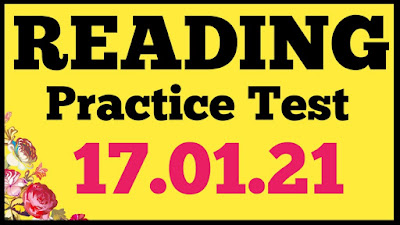IELTS READING PRACTICE TEST
IELTS READING PRACTICE TEST
All the reading tests based on the general problems or historical culture of any nation. This reading is 5 time repeated in the real IELTS exam and chances to be repeated in the upcoming IELTS exam. Make sure, you guys complete this reading test in 1 hour because it is a time limit for the reading module to solve all 40 questions in an hour and Prove that you have a superior skill of reading in ENGLISH.
For our subscribers and viewers, We have held a worldwide workshop for IELTS in which, we want to check your ability in test and level in English. So, Owing to that You need to subscribe to our youtube channel "PRO LEARNING"
We need your support to explore or create new IELTS material for you guys.
The pursuit of knowledge
You should spend about 20 minutes on Questions 1-14, which are based on Rending PASSAGE below.
According to the great English lexicographer Samuel Johnson, knowledge is of two kinds. We know a subject ourselves or we know where we can find information upon it (Boswell Life vol. 2 p, 383 18 April 1775). In the information-driven world we now inhabit, the latter has assumed a much greater level of importance.
At the time of the European Renaissance, which spanned the fourteenth, fifteenth and six-teenth centuries, it was considered possible far the educated, well-read man, the so-called Renaissance man, to possess the sum total of human knowledge. Admittedly, the body of knowledge then available was restricted, being held firmly in check by several important factors; the paucity of books in circulation at that time; the difficulty of acquiring copies of the texts; the need to copy texts by hand; and the cost of doing so. The example of Lupus of Ferrieres’ search for the Ars rhetorica of Fortunatus in the ninth century was repeated again and again throughout the Latin West until the momentous advent of printing in the middle of the fifteenth century. Printed books saw the end of some of the practical limitations placed on the spread of human knowledge. The first revolution in Information technology had begun.
Renaissance man was rapidly left behind by this development; and, henceforth, it would be increasingly difficult for the educated man to cope with the expansion of knowledge that flowed through Europe via the medium of movable type.
In today’s world, the scenario could hardly be more different. The most well-read individual, whom we could legitimately call information man, or homo sapiens, would certainly be considerably more knowledgeable than Renaissance man, Yet, because of the ever-expanding increase in the sum total of human knowledge over the latter half of the last millennium, and the changes in the world of technology, easy access to information has reduced the stature of the educated individual. All that he can hope to be now is an expert in a narrow field, not the all-knowing polymath of yesteryear.
It Is not surprising to see people overwhelmed by the unlimited stream of Information. There is simply too much of it to assimilate, and it is difficult to know what to do with the data once it is received; which brings us back to Johnson’s words. But we need to add another dimension to his dictum, one which was probably true in his time,




Comments
Post a Comment